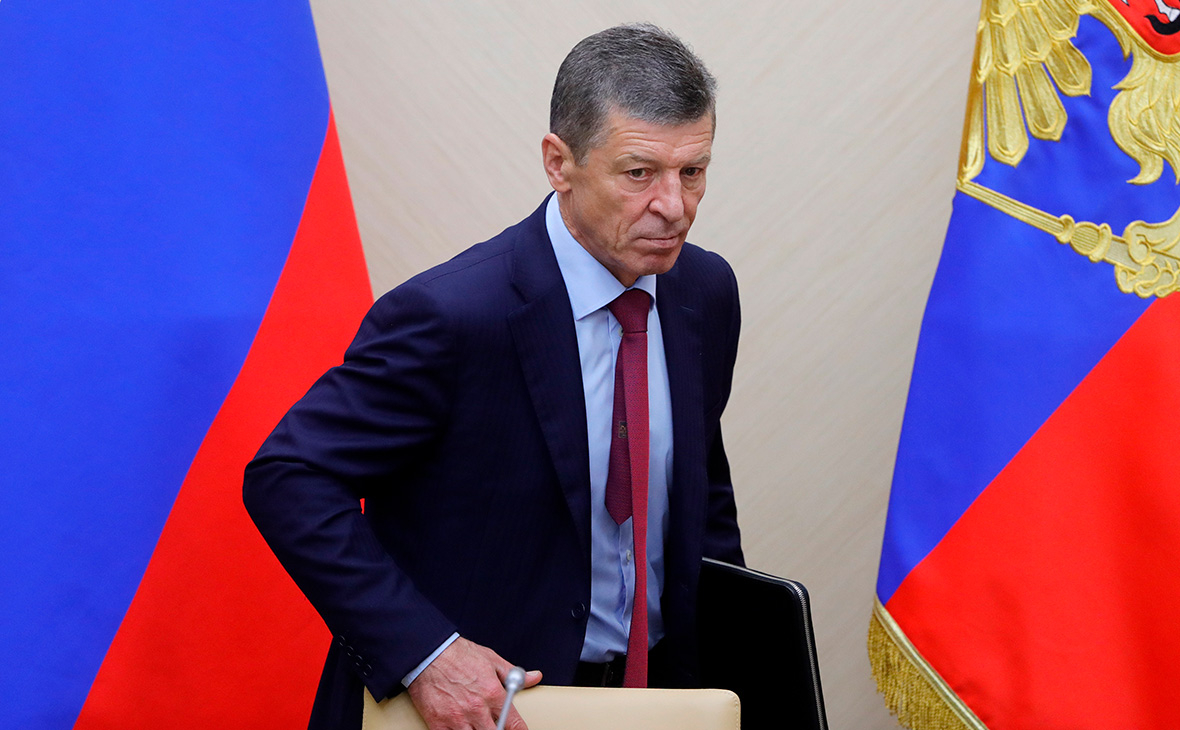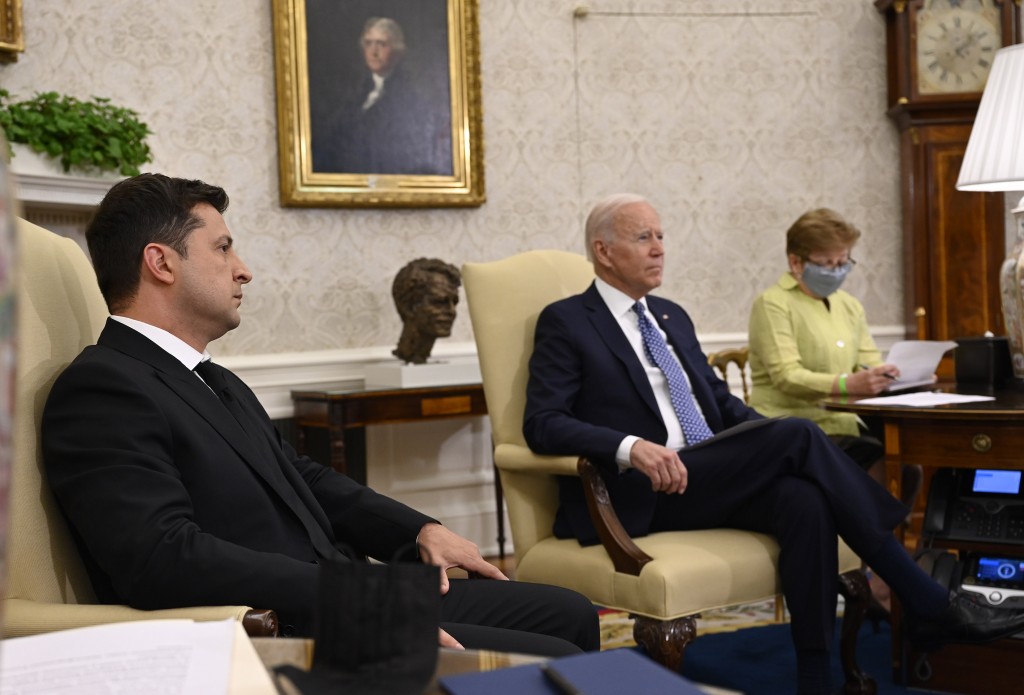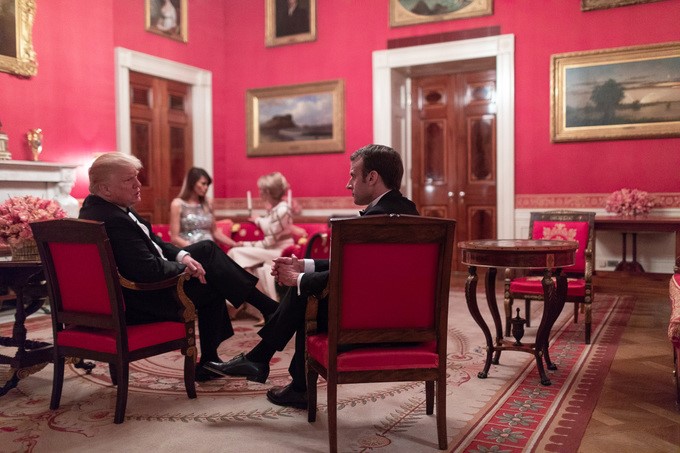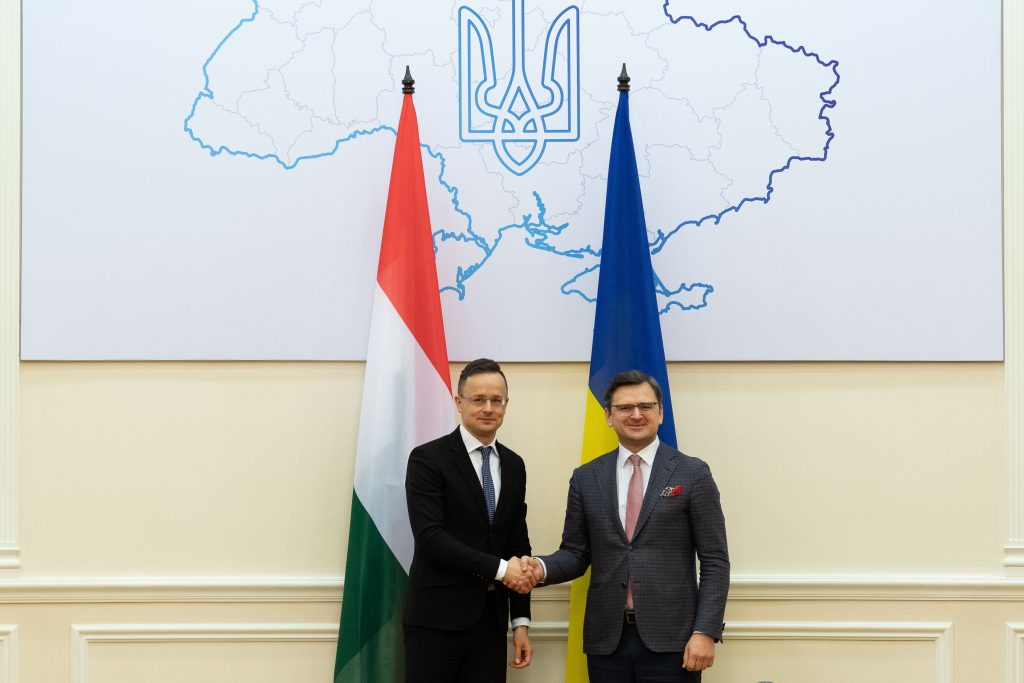Russia’s presidential envoy for conflict-management in Ukraine, Dmitry Kozak, has sent a highly undiplomatic letter to his other counterparts in the “Normandy” forum, gloating over bypassing this forum to maneuver Kyiv into quasi-recognizing Moscow’s military proxies in Donetsk-Luhansk. The agreement on “Measures to Strengthen the Ceasefire Regime” officializes the Donetsk-Luhansk “armed formations,” co-equally with Ukraine’s Armed Forces, as contracting parties to the ceasefire-strengthening measures and to the ceasefire itself. It also relieves Russia of any responsibility for ceasefire violations by its proxies, concealing altogether Russia’s role as the state belligerent against Ukraine. The Minsk Contact Group’s participants—Ukraine, Russia, Donetsk-Luhansk, and the Organization for Security and Cooperation in Europe (OSCE)—worked out this agreement, circumventing the Normandy forum (see EDM, July 29, 30).
The Kremlin has thereby broken the rules of the Normandy and Contact Group processes. Under these rules, the Normandy forum’s participants—Russia, Ukraine, Germany, France—issue “commonly agreed” recommendations or guidelines to the Minsk Contact Group for follow-up negotiations by its participants. The Contact Group, however, went to finalize the agreement and have it signed without the Normandy forum’s common consent. Kozak had presented his proposals at the July 3 Berlin meeting of top diplomatic advisors of the four countries’ leaders. Berlin and Paris found Moscow’s proposals unacceptable and offered counterproposals afterward, but Moscow repeatedly turned down a “commonly agreed” document. For its part, Kyiv resisted for a while, until President Volodymyr Zelenskyy and his envoy Andriy Yermak yielded to Kozak’s demands.
While Kozak broke rules, Zelenskyy and Yermak broke ranks with the quadripartite Normandy forum. Instead, they have accepted a bilateral solution with Moscow on the latter’s terms (see below).
Kozak has celebrated his victory in the unprecedented way of sending a sarcastic official letter to his Normandy counterparts and having its full text leaked via a pro-Moscow outlet in Ukraine (Strana.ua, July 30). Dated July 27, under the Kremlin’s letterhead, the document is a circular letter addressed to the German, French, and Ukrainian diplomatic advisors to state leaders and the three ministers of foreign affairs (Jan Hekker, Heiko Maas, Emmanuel Bonne, Jean-Yves le Drian, Andrey Yermak, Dmytro Kuleba). Given that Hekker and Bonne act as personal envoys of Chancellor Angela Merkel and President Emmanuel Macron in the Normandy forum, and report directly to them, Kozak’s calculatedly rude letter amounts to a nose-thumbing gesture to these state leaders as well.
In this letter, Kozak returns the German-French draft document (on Normandy’s “commonly agreed” recommendations to the Minsk Group) back to the German-French senders “without examining it.” He informs them that the new ceasefire agreement is “based exclusively on the Russian draft,” which took the positions not only of Ukraine and the OSCE but also those of “certain areas of the Donetsk and Luhansk regions” (ORDLO) into account.” This is because “the German and French Advisors’ [draft] ignored the need to take the views of all participants in the dialogue on the Minsk and Normandy platforms into account” (i.e., of Donetsk and Luhansk, who hold the status of participants in the Minsk Contact Group). “Therefore, the Contact Group’s decision was adopted in practice without the parties to the Normandy format.” This demonstrates that “attempts to silently ignore the views and proposals of other participants deprive the Normandy Diplomatic Advisors’ consultations of any substantive value.”
Kozak, therefore suggests to “discontinue the Normandy Diplomatic Advisors’ fruitless negotiations. […] I no longer intend to participate in this endlessly prolonged spectacle… I propose to reduce [this group’s] competencies exclusively to technical assistance to the Normandy countries’ heads of state and government.”
Instead of this forum, Kozak proposes that the four countries’ ministers of foreign affairs take charge of the “substantive negotiations.” He has already coordinated this proposal with Russia’s minister, Sergei Lavrov. But the ground rules of the proposed forum would have to be negotiated. It should allow inputs from the Minsk Contact Group by inviting, “at least,” the OSCE chairmanship’s special representative on Ukraine (the Contact Group’s moderator) and take the views of “all participants” (alluding to Donetsk-Luhansk) “into account.”
Kozak deems such steps necessary “in order to avoid the Normandy format’s full loss of relevance vis-à-vis the actual situation that has taken shape in the Minsk Contact Group.” The OSCE’s representative would supposedly provide a link between the Minsk Group (into which Kozak is transferring the real action) and the Normandy forum.
The letter abounds in sarcastic comments about Kozak’s counterparts’ “effectiveness,” “wisdom,” “joint work” and “experiment,” all in pejorative inverted commas; and it chastises this group’s “obvious incapacity to learn the lessons from the already proven, negative practical experience.”
Beyond the gloating and the gauntlet thrown, there are serious implications in terms of policy and process to Kozak’s message.
- First, he proposes, in effect, to move the negotiations’ center of gravity into the Minsk Contact Group, where Western powers are not available to counterbalance Russia, while Russia’s ORDLO proxies are represented and confronting Ukraine.
- Second, the proposals are designed to infiltrate ORDLO views into the Normandy format, not only via Russia but also via the OSCE (see above).
- And third, by transferring the Normandy process from the direct jurisdiction of state leaders to the lower level of ministers of foreign affairs, Moscow would introduce one more hurdle to Normandy summits, turning Zelenskyy into a Tantalus to whom the summit’s fruit is perpetually offered and denied again.
Read More:
- The quick way to quasi-recognition of Donetsk-Luhansk’s armed formations: a play-by-play account
- New Ukraine ceasefire agreement officializes Donetsk-Luhansk militaries
- New Donbas ceasefire appears to be holding despite spike in violations on first day
- Mass protests in Kyiv against disarming Ukrainian army as part of new truce in Donbas
- Kozak-Yermak plan on Donbas: The fine print
- Ukrainian opposition to “Steinmeier formula” capitulation is nationwide
- Kremlin lambastes alleged Ukraine’s deviations from Minsk and Normandy processes
- Portnikov: Next Normandy Four summit won’t be soon
- Zelenskyy’s first Normandy and the illusion of progress








